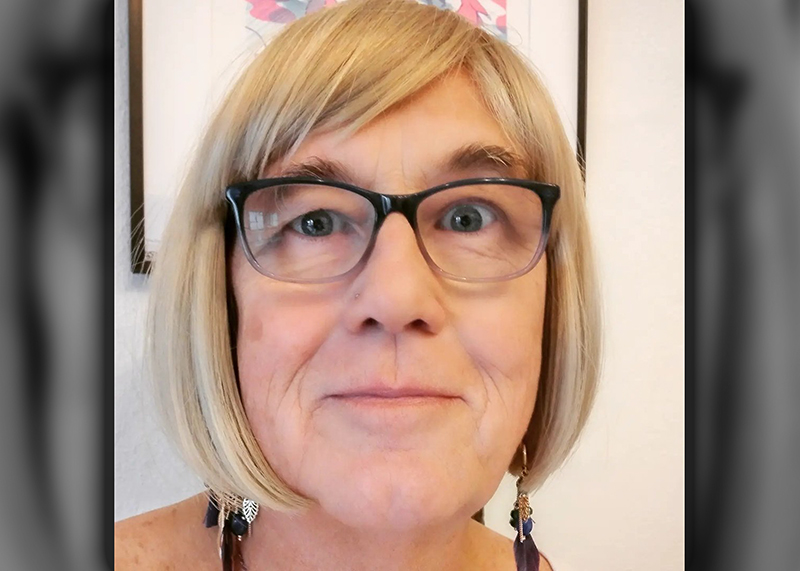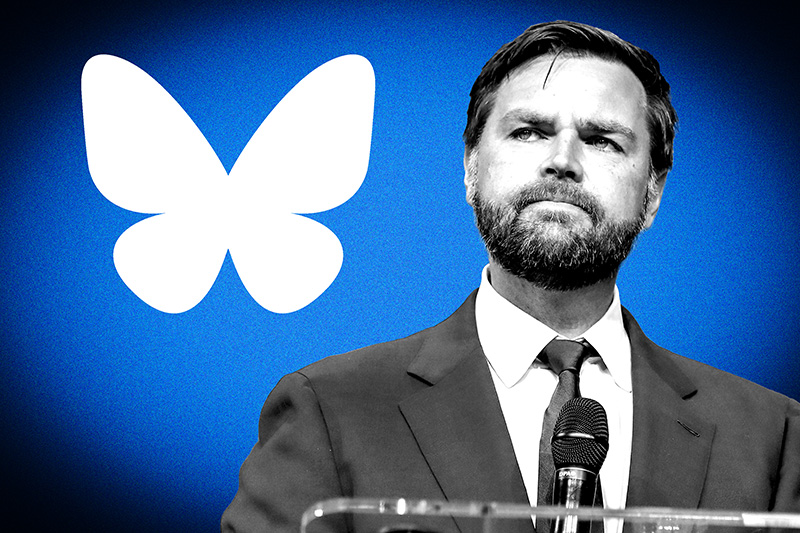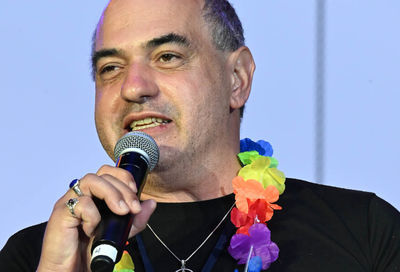Utah Governor Vetoes Transgender Sports Ban
Utah Gov. Spencer Cox has vetoed a ban on trans athletes competing in women's sports, but Republican lawmakers are poised to override his veto.

On Tuesday, Utah Gov. Spencer Cox vetoed a bill barring young transgender athletes from participating in girls’ sports, becoming the second Republican governor this week to reject such a ban.
Cox, a first-term governor, said in a letter announcing his veto that while “politically, it would be much easier and better for me to simply sign the bill,” he chose to veto it because he “tried to do what I feel is the right thing regardless of the consequences.”
“I believe in fairness and protecting the integrity of women’s sports,” Cox said in his letter. “Unfortunately, HB11 has several fundamental flaws and should be reconsidered. Because the bill was substantially changed in the final hours of the legislative session with no public input and in a way that will likely bankrupt the Utah High School Athletic Association and result in millions of dollars in legal fees for local school districts with no state protection, and for several other reasons below, I have chosen to veto this bill.”
Cox had previously vowed to veto the bill after social conservatives in the legislature pushed through a radically altered bill that imposed an across-the-board ban on transgender athletes participating in female-designated sports. The last-minute changes took many by surprise, prompting several Republican lawmakers to break party lines and vote against the bill.
Cox and several other Republicans had previously pinned their hopes on a “compromise” measure, sponsored by Rep. Kera Birkeland (R-Morgan), which sought to avoid a full-scale ban on transgender athletes by requiring athletes to appear before a seven-person commission to determine their eligibility, based on their personal physical characteristics, to compete on sports teams matching their gender identity.
The panel would be comprised of a sports physiologist, a board-certified physician, a mental health professional, an athletic trainer, and one coach or interscholastic official appointed by the presiding state athletic association, who would determine if an athlete’s participation would “present a substantial safety risk to the student or others” or give them “a material competitive advantage when compared to students of the same age.”
But Birkeland, who had consulted with some LGBTQ advocates, was unable to work out a full compromise by the end of this year’s legislative session, prompting social conservatives — who already viewed her original bill as insufficient — to impose much harsher restrictions on transgender participation.
To placate some Republicans concerned about the law being overturned by the courts, Sen. Dan McCay (R-Riverton), the sponsor of the amended legislation, included a provision that would trigger the creation of a commission in the event the larger ban was blocked or subject to a lawsuit.
Ultimately, Birkeland sided with McCay, arguing that something needed to be done to ensure that high school cisgender female athletes were not losing out on athletic opportunities to transgender females.
“High school girls across the state have expressed their concerns, and we owe it to them to listen. Sports are their opportunity to overcome obstacles and break barriers. But in order to do that, they need a fair playing field,” Birkeland said in a statement, as reported by the Salt Lake Tribune.
In his veto message, Cox lamented the fact that lawmakers could have reached a compromise — albeit working on a much slower timeline — just as lawmakers had on previous LGBTQ-related bills, including a nondiscrimination law with protections for LGBTQ individuals that was supported by the Church of Jesus Christ of Latter-day Saints, the largest religious denomination in the state.
“Utah has a history of trying to approach complicated issues in ways that bring collaboration and fairness,” Cox wrote in his veto letter. “From immigration and criminal justice reform to LGBTQ protections and religious freedom, Utah has often shown an unusual willingness to find new and compassionate ways to solve the most toxic debates of our time. For this reason, I was heartened and encouraged to see legislators sitting down with LGBTQ advocates to work on a compromise that would both protect women’s sports and allow some participation for our most marginalized transgendered youth. No other state has done this, and we hoped that Utah could be the first.
“As you know, the negotiations centered around the potential compromise of a commission of experts that would help decide on an individual basis which kids would be able to participate. The concept was fairly simple. For the very small number of transgender kids who are looking to find a sense of connection and community — without posing any threat to women’s sports — the commission would allow participation. However, the committee would prohibit participation in the rare circumstance of an outlier who could pose a safety threat or dominate a sport in a way that would eliminate competitive opportunities for biological females.”
Cox added that McCay’s bill would not resolve the issue of transgender participation at the collegiate level, and that the commission proposed by Birkeland could have achieved the aims that social conservatives are seeking to achieve. He also expressed concerns that a legal battle could potentially bankrupt the Utah High School Activities Association, as the bill does not mention any compensation for school districts or the UHSAA if they are forced to defend themselves against a lawsuit.
Cox called out what he sees as a “broad misunderstanding” among politicians and the public that transgender individuals can simply change their identity on a whim to compete in interscholastic sports. He noted that the UHSAA already requires a full year of hormone therapy before a transgender female can compete in women’s sports, noting that only four transgender students in the state are currently playing high school sports, and only one of those has met the criteria to play on a female-designated sports team. He also expressed concerns about the impact the bill could have on transgender students, citing a study finding that 86% of transgender youth had reported suicidal ideation, and that 56% had actually attempted suicide.
“Four kids and only one of them playing girls sports. That’s what all of this is about,” he wrote. “Four kids who aren’t dominating or winning trophies or taking scholarships. Four kids who are just trying to find some friends and feel like they are a part of something. Four kids trying to get through each day.
“I want them to live. All the research shows that even a little acceptance and connection can reduce suicidality significantly…. If a veto override occurs, I hope we can work to find ways to show these four kids that we love them and they have a place in our state.”
But Republican lawmakers say they’re poised to overturn Cox’s veto as early as Friday, with McCay telling the Tribune that he believes supporters will be able to convince Republicans who voted against the bill to vote for an override.
He noted that many legislative Republicans are facing competitive re-election bids, and more conservative opponents are using the lack of a ban against incumbents. With county conventions beginning Saturday, a veto override on Friday would neutralize the issue for many of those vulnerable Republicans.
Troy Williams, the executive director of Equality Utah, praised Cox’s veto, but said he also expected Republicans to “twist up arms and compel compliance” among members of the GOP caucus.
“We’re saddened to see the zealotry of Utah’s legislature to override,” Williams said. “This override is not about protecting women’s sports. It’s about protecting lawmakers’ political seats from extremists within their own party.”
Support Metro Weekly’s Journalism
These are challenging times for news organizations. And yet it’s crucial we stay active and provide vital resources and information to both our local readers and the world. So won’t you please take a moment and consider supporting Metro Weekly with a membership? For as little as $5 a month, you can help ensure Metro Weekly magazine and MetroWeekly.com remain free, viable resources as we provide the best, most diverse, culturally-resonant LGBTQ coverage in both the D.C. region and around the world. Memberships come with exclusive perks and discounts, your own personal digital delivery of each week’s magazine (and an archive), access to our Member's Lounge when it launches this fall, and exclusive members-only items like Metro Weekly Membership Mugs and Tote Bags! Check out all our membership levels here and please join us today!






























You must be logged in to post a comment.